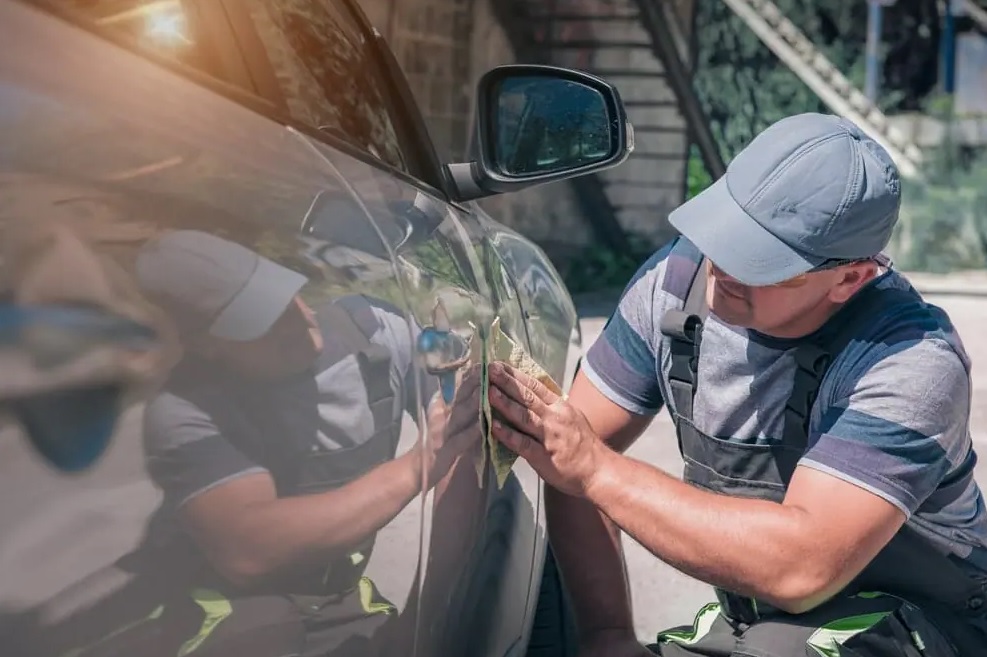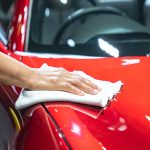In the realm of car maintenance, where every detail contributes to the overall aesthetic and structural well-being of your vehicle, enthusiasts often find themselves on a quest for effective and affordable solutions. Among the various DIY options available, the question that frequently arises is whether 70 isopropyl alcohol is safe for car paint. In this extensive guide, we not only address this query but also delve deeper into the intricacies, potential risks, and safe practices associated with using this common household item on the precious paint job of your beloved vehicle.
Understanding the Basics: What is 70 Isopropyl Alcohol?
Before we embark on the journey of unraveling its impact on car paint, let’s establish a foundation by understanding the characteristics of 70 isopropyl alcohol. Widely recognized for its versatility, this alcohol is a staple for many households due to its potent antimicrobial properties. The 70% concentration strikes a delicate balance, making it effective for various cleaning and disinfecting purposes while ensuring a level of safety for users.
The Intricacies of the Interaction with Car Paint
1. Delving Into the Chemistry
To comprehend the potential effects of 70 isopropyl alcohol on car paint, it’s essential to delve into the chemistry. Isopropyl alcohol, as a solvent, possesses the ability to dissolve various substances, making it an effective cleaner. However, when it comes into contact with your car’s paint, it initiates a subtle yet significant interaction that warrants careful consideration.
2. Risks and Drawbacks: A Closer Look
Lacquer and Clear Coat Vulnerability:
The aggressiveness of isopropyl alcohol raises concerns about its impact on the protective layers of lacquer and clear coat that safeguard your car’s finish. This interaction can lead to a diminished glossy appearance, something no car enthusiast desires.
Paint Oxidation Concerns:
Regular use of 70 isopropyl alcohol may accelerate paint oxidation. This process makes your vehicle more susceptible to the detrimental effects of environmental elements such as UV rays, pollutants, and harsh weather conditions.
Guidelines for Safe Practices: Preserving Your Car’s Shine
3. Optimal Dilution Ratios for Lesser Impact
Mitigating potential risks involves considering optimal dilution ratios for the isopropyl alcohol. A mixture with distilled water, ideally in a 1:1 ratio, can be a prudent approach. This dilution allows the alcohol to retain its cleaning properties while minimizing its potentially harsh effects on the paint surface.
4. Gentle Application Techniques for Minimal Abrasion
The application technique is just as crucial as the choice of solution. Opt for a soft microfiber cloth when applying the solution, and use gentle, circular motions to prevent unnecessary friction that could exacerbate any potential damage to the paint surface.
Insights from the Experts: What Professionals Recommend
5. Cautionary Advice from Automotive Professionals
Seeking guidance from experts in the automotive industry reveals a consensus on exercising caution when using isopropyl alcohol on car paint. While it can be effective for specific tasks, its application requires a nuanced understanding to avoid unintended consequences.
6. Exploring Alternatives for Paint-friendly Cleaning
For those who prefer an extra layer of caution, there’s a plethora of automotive cleaning products explicitly designed to maintain your car’s appearance without risking damage. These alternatives offer effective cleaning solutions without compromising the integrity of the paint job.
Learning from Real-world Experiences: Community Feedback and Insights
7. Diving into Forums and Communities
To enrich your understanding, consider immersing yourself in online forums and communities where fellow car enthusiasts share their experiences. Real-world anecdotes provide valuable insights, cautionary tales, and practical tips that go beyond theoretical knowledge. (See Also: How to Put 303 on Tires: A Step-by-Step Guide for Tire Maintenance)
8. Case Studies and Success Stories
Exploring case studies and success stories can further illuminate the potential outcomes of using 70 isopropyl alcohol on car paint. Discover how others have navigated the delicate balance between cleanliness and preserving the vehicle’s aesthetic appeal.
Expert Tips: Safeguarding Your Car Paint from Isopropyl Alcohol
When it comes to maintaining your car’s pristine appearance, every precaution counts. Using isopropyl alcohol on car paint requires a delicate touch and informed decisions. Here are some expert tips to help you navigate this territory and preserve the luster of your vehicle.
1. Dilution Wisdom: Finding the Right Balance
Optimal dilution is key to minimizing potential risks. Experiment with different ratios of isopropyl alcohol to distilled water, aiming for a balance that retains cleaning efficacy while reducing its impact on your car’s paint.
2. Selective Cleaning: Focus on Targeted Areas
Rather than applying isopropyl alcohol across the entire surface, use it selectively on specific areas. This targeted approach ensures you address contaminants without subjecting the entire paint job to unnecessary exposure.
3. Gentle Application: Soft Cloth and Delicate Movements
Choose a soft microfiber cloth for application, and employ gentle, circular motions. This minimizes friction and potential abrasion, safeguarding your car’s paint from unintended damage.
4. Test in Small Areas: Assessing Compatibility
Before applying isopropyl alcohol on prominent areas, perform a small test on an inconspicuous spot. This allows you to assess compatibility and observe any adverse reactions before committing to a broader application.
5. Swift Removal: Minimizing Contact Time
When using isopropyl alcohol, ensure swift removal after cleaning. Prolonged contact can increase the risk of adverse reactions with the paint, so efficiency in the cleaning process is crucial.
6. Post-Cleaning Protection: Waxing and Sealing
Following isopropyl alcohol cleaning sessions, consider applying a protective wax or sealant. This additional layer provides a buffer against potential damage and enhances your car’s defense against environmental elements.
7. Monitor for Changes: Stay Vigilant
Regularly inspect your car’s paint for any changes or signs of damage. Early detection allows for prompt corrective action, preventing long-term issues from developing.
8. Professional Consultation: Seek Expert Advice
When in doubt, consult with automotive professionals. They can provide personalized insights based on your specific vehicle make and paint type, ensuring you make informed decisions about its care. (See Also: Is Goof Off Safe on Car Paint? A Comprehensive Guide to Protecting Your Vehicle’s Finish)
By incorporating these expert tips into your car maintenance routine, you can confidently use isopropyl alcohol while mitigating potential risks and preserving the brilliance of your car’s paint.
FAQs: Navigating the Waters of Using Isopropyl Alcohol on Car Paint
In the realm of car care, questions often arise about the safety and efficacy of using isopropyl alcohol on your vehicle’s paint. Let’s address some common queries to provide clarity on this topic.
1. Is 70 Isopropyl Alcohol Safe for Car Paint?
Answer: While 70 isopropyl alcohol can be effective for cleaning, its use on car paint requires caution. The solvent properties may pose risks to protective layers, potentially affecting the finish.
2. Can I Dilute Isopropyl Alcohol to Make it Safer?
Answer: Yes, diluting isopropyl alcohol with distilled water is a recommended practice. Finding the right ratio (commonly 1:1) balances cleaning effectiveness with minimizing potential harm to the paint.
3. How Should I Apply Isopropyl Alcohol on Car Paint?
Answer: Use a soft microfiber cloth and gentle, circular motions during application. This minimizes friction and reduces the risk of unintended damage to the paint surface.
4. Are There Areas Where Isopropyl Alcohol Shouldn’t Be Used?
Answer: It’s advisable to use isopropyl alcohol selectively on targeted areas rather than applying it across the entire surface. This focused approach helps minimize unnecessary exposure.
5. Can Isopropyl Alcohol Cause Paint Oxidation?
Answer: Regular use of isopropyl alcohol may accelerate paint oxidation, making the vehicle more susceptible to environmental damage. Dilution and controlled application can help mitigate this risk.
6. Should I Test Isopropyl Alcohol on a Small Area First?
Answer: Yes, performing a small test on an inconspicuous spot is wise. This allows you to assess compatibility and observe any adverse reactions before broader application.
7. How Can I Protect My Car Paint After Using Isopropyl Alcohol?
Answer: Consider applying a protective wax or sealant post-cleaning. This additional layer acts as a buffer against potential damage and enhances the car’s defense against environmental elements. (See Also: Will Lacquer Thinner Damage Car Paint? Tips to Safely Remove Paint and Avoid Damage)
8. How Often Can Isopropyl Alcohol Be Safely Used on Car Paint?
Answer: Limit the frequency of isopropyl alcohol use to minimize potential risks. Incorporate it into your cleaning routine cautiously, and monitor your car’s paint for any signs of adverse effects.
9. Can I Use Isopropyl Alcohol on Matte Paint?
Answer: Exercise extra caution with isopropyl alcohol on matte paint. Test in a small area first, as the solvent properties may affect the unique finish of matte surfaces.
10. When in Doubt, Should I Consult a Professional?
Answer: Absolutely. If uncertainties persist or if you encounter specific issues, seeking advice from automotive professionals ensures you receive tailored guidance based on your vehicle’s make and paint type.
By addressing these FAQs, we aim to empower car enthusiasts with the knowledge needed to make informed decisions about using isopropyl alcohol on their prized vehicles.
Conclusion: Striking a Delicate Balance
In the pursuit of a gleaming vehicle, the choice of cleaning agents becomes paramount. While 70 isopropyl alcohol has its merits, exercising caution and exploring paint-friendly alternatives is crucial for maintaining your car’s aesthetic appeal without compromising its long-term well-being.
In summary, the question “Is 70 isopropyl alcohol safe for car paint?” warrants a thoughtful and informed approach. By weighing the advantages against potential risks and considering safe practices, you can make conscious decisions that contribute to preserving your car’s luster and protecting its paint job. Remember, the journey of maintaining a car is a continuous learning process, and arming yourself with knowledge ensures that your beloved vehicle remains a source of pride for years to come.



